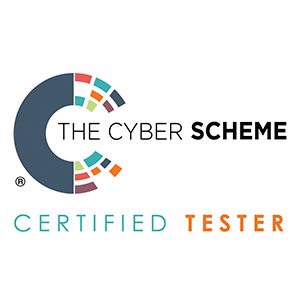
What is Penetration Testing and Why is it Important
Introduction to Penetration Testing
Penetration testing, commonly referred to as pen testing, is a standard practice in business security. Whether conducted internally or by a third party like Incursion Cyber Security (ICS), it’s akin to securing your home before a holiday, ensuring all entry points are secure and for extended trips the water turned off to avoid leakages. For businesses, this safeguards against costly security breaches and cyber threats, or “attack vectors,” by identifying and addressing vulnerabilities.
Recent statistics and the significant increase in Ransomware attacks emphasise the critical importance of pen testing. A significant portion of cyber breaches, approximately 68%, could have been avoided if organisations had conducted regular penetration tests. These tests act as proactive measures to strengthen defences, providing practical insights and tools to improve digital security in an ever-changing landscape. The goal is to stay ahead of evolving cyber risks, in order to limit the impact of potential breaches that can pose significant financial and reputational risks for businesses.
Let’s take a closer look at the types of tests a company can run and weight up the pros and cons of each.
Types of penetration tests
Penetration testing offers three main approaches. Since there’s no one-size-fits-all, tests are tailored to your industry, compliance requirements, and business needs. The key approaches include:
Manual Testing (by humans)
Description: Consultant led penetration testing, typically led by an ethical hacker or certified tester, involves a comprehensive examination of networks, infrastructure or web applications to identify security gaps and vulnerabilities, incorporating elements of simulated real-world attacks.
Advantages: Human testers are extremely creative and intuitive, applying their expertise usually gained across a variety of industries and threat landscapes to discover complex issues that automation technologies might miss. A human-led approach also enables the individual to adapt in real time within the parameters of the agreed scope.
Disadvantages: If may be time consuming and may not scale well across large systems. This depends on the skills and expertise of the tester or third party.
Automation tools (by technology)
Description: Automation tools such as software programs and vulnerability identification platforms scan your network, computers and software applications for potential weaknesses and threats. (In the next blog, we’ll take a deep dive into the distinction between vulnerability scanning vs. pen testing).
Advantages: Quick and easy to deploy and can cover large amounts of data and systems at scale. Great for repetitive low-level routine checks.
Disadvantages: Unlikely to identify specific, high-value or sophisticated vulnerabilities that require human intuition and intervention. False positives can occur, leading to a loss of resources and investigative time.
Blended approach (human and tech)
Description: A combination of both manual and technology testing. Human testers deploy automated tools to detect basic anomalies whilst they focus their skills on deep penetration within an organisation.
Advantages: Leveraging the strength of both human creativity and intuition combined with the speed of automation provides a powerful and comprehensive assessment of an organisation’s security posture from the inside out. It also allows the consultant to identify and rule out false positives identified by automated testing.
Disadvantages: Sometimes small limitations can occur. Co-ordination between the two methods is critical to ensuring effective results.
In summary, each approach has its strengths and limitations, the key is to ensure whichever your use enhances your security.

Quite simply, penetration testing is a critical part of any physical and digital security defence strategy. Penetration testing validates the security posture of an organisation’s infrastructure, networks, computers, applications and people. The entire process is designed to identify weaknesses in an organisation’s security before the cybercriminals or “bad actors do.”
Penetration testing is a safe and effective methodology for identifying and fixing weaknesses before these can be exploited by a hacker or cybercriminal. This allows security teams and businesses to discover security weaknesses before a cyber attack or data breach occurs. But what does this mean in terms of business impact?
Company Reputation and Customer Trust
Reputation in business is everything. It has the power to make or break an organisation. It takes years to develop customer trust and a solid reputation. Yet, years of great work can be quickly undone by one data breach.
Infrastructure Security
Infrastructure security is paramount to the physical and digital security posture of any organisation. There’s a number of ways to test an organisations infrastructure, Penetration testing being top of the list for the past couple of decades. It really is the number one way to identify weak spots in employee security, cloud configurations or web applications which can be easily exploited by a hacker or cybercriminal.
Efficient Security Policies, Measures and Procedures
Security of an organisation’s people and assets, such as data, is of critical importance. However, no organisation is safe from an attack, be it by an internal threat actor (a compromised employee) or by hackers. It’s paramount that all organisations, regardless of size, have adequate security policies, measures, and procedures in place in the event of an attack. Penetration testing enables organisations to carry out a gap analysis across their threat landscape to map out and mitigate against possible attack vectors before an attack occurs. Having a robust incident response (IR) system in place further ensures swift and effective actions are taken in the face of a security breach.
How much can a cyber attack or data breach cost?
The cost of a cyber-attack or data breach is significant for organisations of any size, The reputational, legal, and financial repercussions can amount to millions of pounds. Reports by the NCSC indicate that in the UK, small businesses face an average cost of around £1.5 million, while larger enterprises can incur tens of millions. Beyond the loss of customer trust and reputation, the economic impact extends to court cases and fines related to compliance breaches, including GDPR, SOX, PCI, BSA, and FFIEC. Conducting regular penetration testing helps mitigate both economic and reputation risks associated with potential data breaches and cyber-attacks.
How frequently should you run a pentest
There’s no one size fits all answer to how often should you perform a pentest. It will largely be dependent on the size of your organisation and your organisations risk level. Organisations with minimal sensitive data may test annually, while high-risk entities like legal firms or online marketplaces may conduct daily or weekly tests. Investment banks often prioritise continuous security testing.
The key is to find the solution that works best for your organisation. If you are unsure of the level of risk your organisation faces, it’s best to seek external support from a security consultant.
What does penetration testing cover?
Pretests are an essential part of any defence and security strategy. They typically involve highly skilled ethical hackers simulating a real-world attack on organisations systems and applications to identify weaknesses before a hacker does. A penetration test can be broken down into 7 assessment categories:
- Infrastructure
- Cloud security
- Web application
- Wireless & Configurations
- Social Engineering
- Assumed Compromise
- Physical Environments
Comprehensive testing of these categories ensures a thorough risk evaluation of an organisations internal and external security posture.
Why work with Incursion Cyber Security
At Incursion Cyber Security (ICS), we offer a comprehensive range of NCSC certified penetration testing solutions and services tailored to your organisations needs. Our Ex-Veteran, highly skilled testers and consultants have gained a wealth of experience across a variety of industries in identifying vulnerabilities and providing actionable insights that deliver immediate impact to allow you to strengthen your digital and physical security procedures and measures.
We work with you to assess your security from the perspective of a hacker or insider, working with you to identify and mitigate potential attack vectors, lowering your cyber risk profile, reducing your risk of a data breach or attack.









